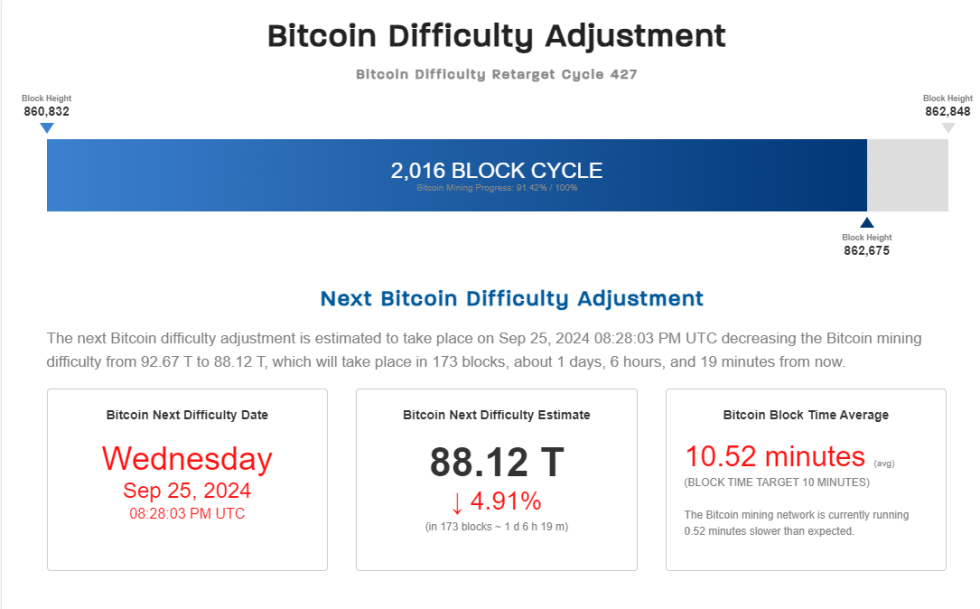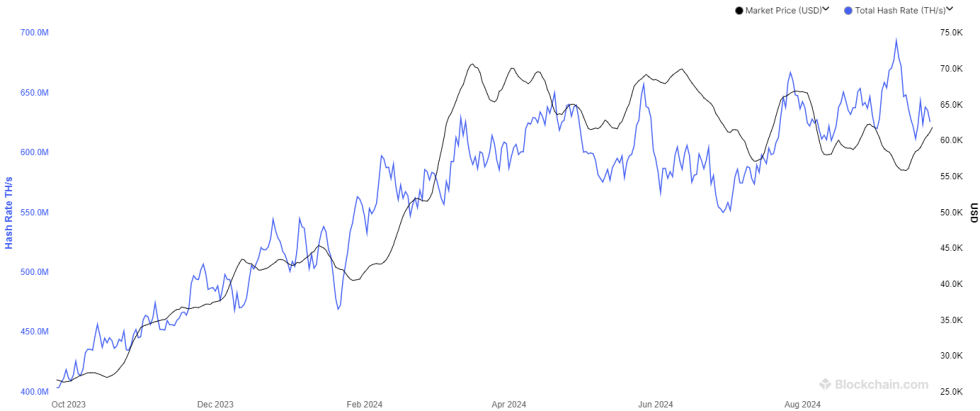- September 25, 2024
- Posted by: admin
- Category: BitCoin, Blockchain, Cryptocurrency, Investments
On-chain data suggests that the difficulty of Bitcoin mining is set to drop around 5% in the next network adjustment, a change that miners would appreciate.
Bitcoin Network Block Time Has Been Slower Than Normal Recently
The “Mining Difficulty” refers to how hard miners would find to mine blocks on the BTC network. The Difficulty’s purpose is to ensure that the total time between each block being added to the blockchain, known as the block time, stays constant for around 10 minutes.
Whenever the pace of the miners deviates from this value, the network adjusts its Difficulty to get block time back to the standard one. These adjustments occur about every two weeks, with the latest one set to go live at some point tomorrow.
As data from CoinWarz shows, the miners have been unable to mine at a rate of a block every 10 mins during the last couple of weeks.

With an average block time of 10.52 mins, the Bitcoin blockchain has been running slower than intended, so the network will reduce its difficulty by 4.91% tomorrow. With a lower difficulty, miners should find it easier to find blocks and get the chain back up to speed.
As for why miners have been slow recently, the answer lies in the trend of the Mining Hashrate, a measure of the total amount of computing power that the miners have connected to the BTC blockchain.
Below is a chart from Blockchain.com, which shows the past year data for the 7-day average of this metric.

As is visible in the graph, the 7-day average Bitcoin Mining Hashrate had set a new record earlier in the month, but since then, the indicator’s value has sharply declined.
With much less computing power available to them, the miners have naturally become slower at their task recently, which has forced the network into this Difficulty decrease. If they had instead upped their power during this period, the Difficulty would be heading towards another increase.
The lowered Difficulty will be refreshing for the miners, as block time is directly connected to their revenue. Miners make their income through the block reward, a combination of the block subsidy and the transaction fees, which they receive as compensation for solving blocks.
The faster the miners can go through blocks, the more revenue they can make. Since the network tries to restrict its block time to around 10 mins, there is a limit to how much miners can earn.
Even if miners double their computing power overnight, they can only earn at least twice the pace for a couple of weeks, before the Bitcoin blockchain sends them back to normal pace by massively upping the Difficulty.
This is the main reason why the Difficulty exists, so that the miners can’t keep increasing their power indefinitely to churn through blocks faster. Without this feature, the cryptocurrency would easily fall prey to inflation since the block subsidy, the main component of the block reward, is how new coins are ‘minted.’
BTC Price
At the time of writing, Bitcoin is floating around $63,400, up 4% over the last seven days.